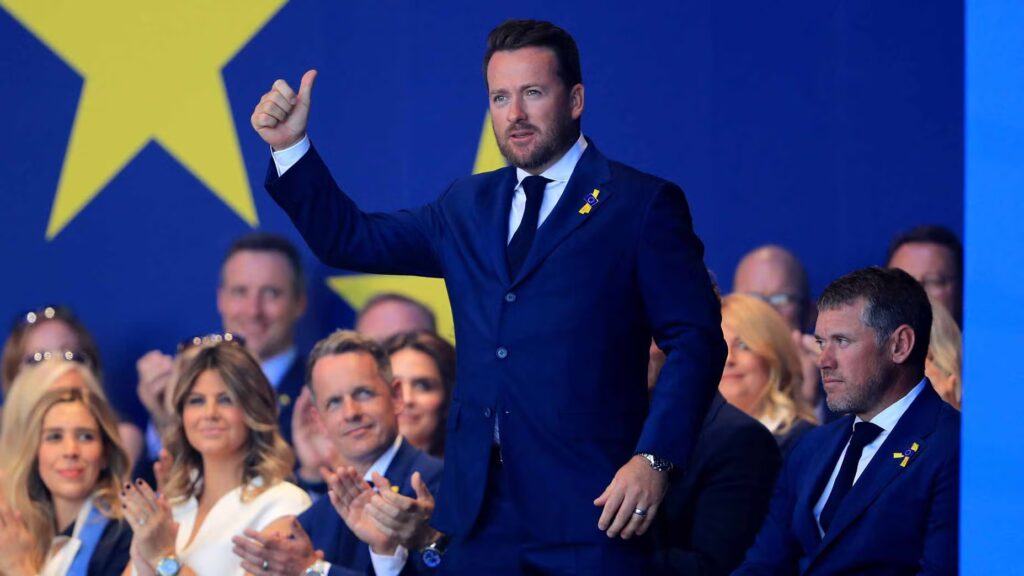Graeme McDowell’s Aspiration for Ryder Cup Captaincy: Navigating the Divisiveness in Golf
Graeme McDowell, a professional golfer known for his remarkable achievements in the sport, has his sights set on becoming the captain of the Ryder Cup team in 2027. As a prominent player from LIV Golf, he stands at a crossroads where he faces not only personal aspirations but also the broader implications of a divided golfing community. The Ryder Cup, a prestigious event in golf, brings together top players from Europe and the United States, showcasing not just their skills, but also their ability to unite under a common banner.
McDowell has articulated concerns about the growing "divisiveness" among elite golfers, which could potentially hinder his ambitions. The friction stems from disagreements that have arisen mainly due to the advent of LIV Golf, a new professional tour that has significantly shifted the landscape of competitive golf. Many established golfers have voiced their concerns about the impact of LIV on the traditional structure of the sport and the camaraderie that the Ryder Cup embodies.
As a seasoned competitor who has represented Europe in previous Ryder Cups, McDowell understands the significance of teamwork in this event. He expressed that the current tensions among players could make it challenging to foster the unity required for such a prestigious competition. McDowell is not just looking to lead a team of players; he seeks to mend the fences that have been eroded by current controversies.
The LIV vs. PGA feud resonates deeply within the golfing community and has led to a polarizing environment. While some players have embraced the financial opportunities provided by LIV Golf, others remain loyal to the PGA Tour. McDowell believes that for the Ryder Cup to thrive, it is crucial for players to come together, regardless of their tour affiliations. His vision is one of inclusion, where golf’s highest caliber talents can set aside their differences for the greater good of the sport.
The Ryder Cup is not merely a tournament; it is a storied tradition that aims to showcase the best of golf while emphasizing sportsmanship and rivalry in a manner that unites both players and fans. McDowell’s aspiration reflects a desire to preserve this essence, even as the sport grapples with changes that are reshaping its identity. His concerns highlight the broader implications for golf, where the joy of competition could be overshadowed by internal strife.
As he prepares for his potential role as captain, McDowell is not only focused on curating a successful roster of players but also on fostering a sense of shared purpose within the team. His leadership philosophy emphasizes dialogue and understanding among players, aiming to create an environment that prioritizes collaboration over competition, both on and off the course.
The challenges McDowell faces are indicative of larger shifts within professional sports. The advent of new leagues can cause rifts among established players and create a fractious atmosphere that complicates traditional events. McDowell’s insights provide a critical reminder that, while financial incentives are important, the spirit of competition, unity, and respect must remain at the forefront.
Looking ahead to the 2027 Ryder Cup, McDowell’s promises to prioritize teamwork and solidarity represent a refreshing approach in an era marked by division. His desire to step into a leadership role could be the catalyst that brings back the focus on community and connection that the Ryder Cup was originally built on. His journey and aspirations will undoubtedly be watched closely by both fans and players alike.
Ultimately, as McDowell cultivates his dream of captaining the Ryder Cup team, he must navigate the complexities of a changing sport, appealing for solidarity while championing a new chapter of collaboration among golf’s elite. The aspirations of one player can serve as a beacon of hope for a sport yearning for unity—a reminder that even amidst controversy, the game’s true spirit can prevail. As the countdown to 2027 begins, golf enthusiasts will be keenly observing how these dynamics unfold.
McDowell’s insights serve as a microcosm of the larger discussions within the sport, putting a spotlight on the importance of bridging gaps between rival factions. It remains to be seen how the narrative will evolve as the 2027 Ryder Cup approaches, but one thing is certain: Graeme McDowell’s ambition as a potential captain embodies the hope that golf can rise above its challenges and unite for a common cause.


